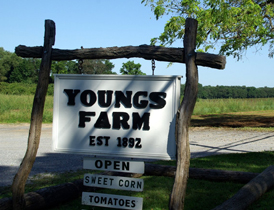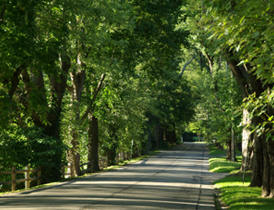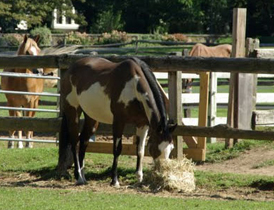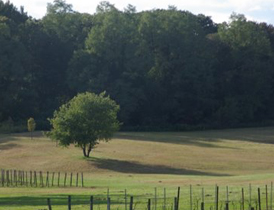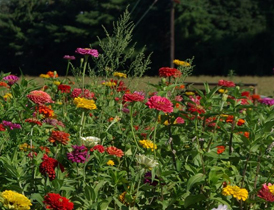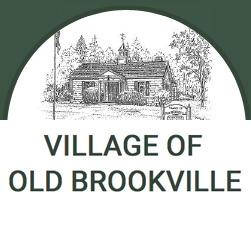The Draft of the Village 2025 Stormwater Management Program Annual Report is now available for public review on the Village’s website and at the Village Hall. The Village Stormwater Management Program Plan Documents are also available for public review at the Village Hall. Comments and questions on the Village Stormwater Management Program can be submitted to (516) 671-4664 and village@oldbrookville.net.
Click Here to Read the 2025 Stormwater Management Report
Send any comments to this report to: village@oldbrookville.net
What You Can Do to Protect Our Streams, Harbors and Bays from Stormwater Pollution
Report illicit discharges to the Village or County drainage system to the County Stormwater Hotline (516) 571-7535. All callers can remain anonymous.
Additional Storm Water Links:
- USEPA Storm Water
- NYSDEC Storm Water
- Nassau County Storm Water
- Center for Watershed Protection
- Pet Waste Pollution
- Septic Systems
- Managing Your Septic System
What is storm water pollution?
Anything that gets in the path of a raindrop becomes storm water pollution. Another name for storm water pollution is non-point source pollution.
How is storm water pollution a problem?
Every time it rains, storm water is carried directly to our surface waters. That means that storm water pollution can have detrimental effects to creeks, lakes, ponds, rivers and the oceans into which it drains.
What types of pollutants are in storm water pollution?
Storm water can carry sediment, trash, automotive fluids like used oil and antifreeze, grass clippings, leaves, yard waste, excess fertilizers, animal waste, pesticides and anything else that gets in its way.
What can citizens do to prevent storm water pollution?
There are several things citizens can do to prevent storm water pollution.
Household Hazardous Waste
- Never dump anything down a storm drain. All storm drains flow directly to creeks and lakes.
- Take used oil, paint and other household hazardous waste to recycling centers.
- Check your car for oil or other leaks.
Animal Waste
- Pick up after your pets. Dispose of animal waste properly in a trash receptacle or flush it down the toilet.
Lawn Care
- Apply fertilizers and pesticides exactly where you want them. Avoid over spraying them onto sidewalks, driveways or streets.
- Reduce the amount of fertilizers you need to apply by testing the soil in your yard first.
Reducing Runoff
- Adjust sprinklers so that you’re not watering the street or sidewalk.
- Redirect roof gutters to lawns, natural areas or rain gardens.
- Talk you car to a car wash instead of washing it on the driveway.
Pool Water
- Pool water must be dechlorinated before discharging.
- The federal Clean Water Act prohibits the discharge of pollutants to waters. Even seemingly small concentrations of chlorine can harm aquatic life. Chlorine can be very toxic to fish, small crustaceans, and plankton. The U.S. Environmental Protection Agency acknowledges that at 1mg/L or less chlorine has a high acute toxicity to aquatic organisms.
- It is against federal law to discharge chlorinated water without first reducing chlorine to acceptable levels (<0.1 mg/L).
Consider the following options for removing chlorine:
- Simply stop adding chlorine to your uncovered pool and wait. Sunlight will help to naturally dissipate the chlorine within 10 days. During that time, use a swimming pool test kit to measure chlorine.
- Chemically dechlorinate the pool water. Chemicals that will quickly remove chlorine are available through pool and spa care vendors.
Yard Waste
- Sweep up yard debris instead of washing it away.
- Bundle yard waste at the curb for pickup.
- Blow leaves and grass clippings back into your yard instead of leaving them in the street to wash down the storm drain.
- Use a compost bin to turn yard waste into a useful gardening product.
Planting
- Replant bare areas to avoid soil erosion.
- Keep invasive plants from growing in your yard. Remove them before they have a chance to grow and spread.
- Avoid planting exotic plants. Select only plants that are native to this area.
Volunteer
- Report spills, dumping or suspected water pollution to the Village.
- Clear clogged storm drains. Blocked drains cause drainage problems.
- Participate in community-wide clean up days and other events.
- Alert neighbors to the storm water pollution problem.
Your Septic System
Overflowing septic systems can result in pathogen pollution:
- Have your septic system inspected at least every 3 years by a professional
- Your tank pumped as recommended by the inspector (generally every 3 to 5 years).
- Household chemicals, gasoline, oil, pesticides, antifreeze, paint, etc. should be taken to the Town S.T.O.P collection sites and not flushed. Overflowing septic systems can pollute our waterways.
Geese and other Waterfowl
Droppings from geese and ducks can be a significant source of pathogens that pollute our waterways:
- Don’t feed geese and ducks, it encourages them to remain and become full-time residents and create a nuisance
- Feeding them bread and popcorn in unhealthy for the birds
- Feeding concentrates geese and leads to human/goose conflicts
Is it illegal to pollute the storm drainage system?
It is illegal to discharge, cause to be discharged, directly or indirectly, or cause any pollutant to enter into the storm drain system unless permitted by a NYSDEC permit. Storm water is the only discharge permitted in the storm water system with exception of incidental non-storm water flows which do not negatively impact the quality of the receiving stream including:
- Water line flushing, except super-chlorinated water line flushing.
- Landscape irrigation.
- Uncontaminated groundwater infiltration.
- Uncontaminated, pumped groundwater.
- Discharge from potable water sources.
- Foundation drains.
- Air conditioning condensate.
- Irrigation water.
- Springs.
- Lawn watering.
- De-chlorinated swimming pool discharge.
- Street wash water.
- Flows from emergency fire and rescue operations other than those resulting from negligence on the part of the person who owned or controlled the pollutant.
Horse owners must consider the following points to protect water quality:
Paddock Management
- Collect manure from stalls daily and uncovered paddocks daily ( particularly during winter), and store in sheltered stockpile areas.
- During the dry season, moisten paddock areas after manure clean up to facilitate decomposition of residual waste.
- Prevent excess chemicals from grooming and health products from draining directly into waterways.
- Maintain buffer strips of vegetation between barnyards, paddocks, manure storage areas and waterways to filter sediments and absorb nutrients in runoff.
- Maintain proper grading in paddock areas to avoid pooling water and mud.
Pasture Management
- Maintain pasture productivity by controlling the number of livestock and amount of time they spend on a pasture.
- Cross-fence pastures to allow rotation of grazing animals.
- Prevent bare areas from forming in pastures and allow time for re-growth. Graze grass to a height of 3-4 inches and allow re-growth to 6-8 inches before returning livestock to it.
- Use exclusionary fencing and limit grazing of riparian corridors.
- Create winter sacrifice areas to keep livestock off wet soils which will reduce mud and erosion.
Manure Storage Management
- Maintain buffer strips of vegetation between manure storage areas and waterways to filter sediments and absorb nutrients in runoff.
- Store stockpiled manure on flat ground.
- Locate manure stockpiles on an impervious surface (concrete pad or plastic tarp) to prevent leaching.
- Cover manure piles to prevent rainwater from picking up any contaminants and carrying them to surface and/or ground water.
- Remove stockpiled manure on a regular basis.


